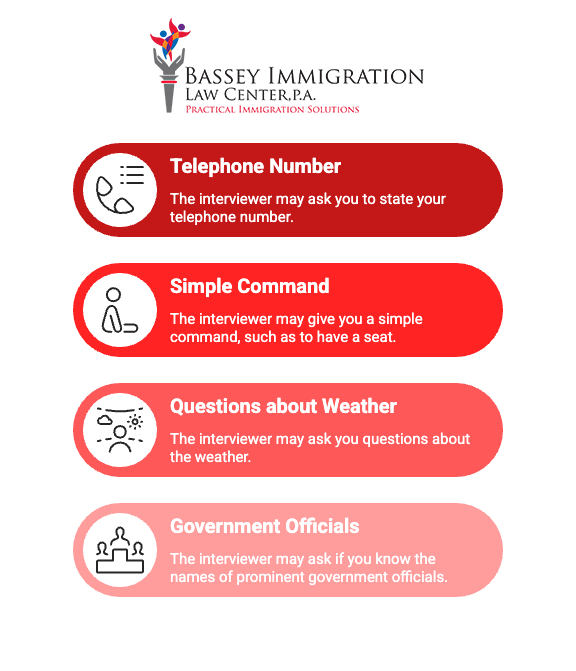Things to Know About the U.S. Citizenship Test
When you emigrated from another country to Florida, you no doubt had numerous dreams and goals that you hoped to accomplish once you’d settled into your new lifestyle. Perhaps you’re one of many immigrants whose ultimate goal is to become a naturalized U.S. citizen. As you know, achieving this worthwhile goal involves taking several tests. Test-taking can be stressful, especially if you get confused about a specific question.
The more you know about what to expect when taking a naturalization test, the less stressed you’ll be. There are multiple sections on the test that are designed to assess your ability to do certain things, such as read English, as well as test your knowledge about certain facts related to the United States. Seeking additional support while you study may help you accomplish your goals.
What is the US Citizenship Test?
Basically, the citizenship test consists of an English language component and a civics component. An American civics test assesses knowledge of American government by answering 10 questions correctly from a pool of 100. The English language test evaluates reading, writing, and speaking abilities, and passing both components is essential for naturalization.
When you file an application to become a naturalized U.S. citizen, you must prove that you have sufficient skills in reading, speaking, writing and understanding English. You must also show that you know basic information about federal, state and local laws, as well as details about U.S. history.
What Types of Questions Will your Interviewer Ask?

When an immigration official is questioning you for your naturalization test, he or she is observing your ability to understand what he or she is saying and respond accordingly. The questions included in the interview are typical inquiries that might be presented to you during a citizenship test:
- Request to state your telephone number
- A simple command, such as to have a seat
- Questions about the weather
- Whether you know the names of prominent government officials
If your interviewer asks you a question to which you don’t know the answer, it’s always best to be honest rather than try to fake knowledge or lie. If you’re able to answer your interviewer’s questions in English or perform the simple commands you’re given, it shows that you have mastered English and will be able to function in your daily life as a U.S. citizen.
The civics portion of the naturalization test is often the most stressful. You’ll be required to demonstrate an understanding of the three main branches of government in the United States and answer numerous questions about history and how the government functions on state and local levels. If a legal issue regarding your status arises during your application process, it can delay or impede your ability to become a naturalized U.S. citizen.
About Bassey Immigration Law Center, P.A.
Bassey Immigration Law Center, P.A., led by attorney Aniefiok Bassey, provides comprehensive immigration services to individuals, families, and businesses in Florida and beyond. With over 20 years of experience, the firm assists clients with a wide range of immigration matters, from family reunification and green cards to business visas and deportation defense. The diverse, multilingual team is dedicated to supporting clients through the complex immigration process, with a special focus on citizenship, asylum, and LGBTQ+ immigration needs. They offer affordable initial consultations and are committed to delivering personalized, strategic guidance for achieving clients’ immigration goals.



